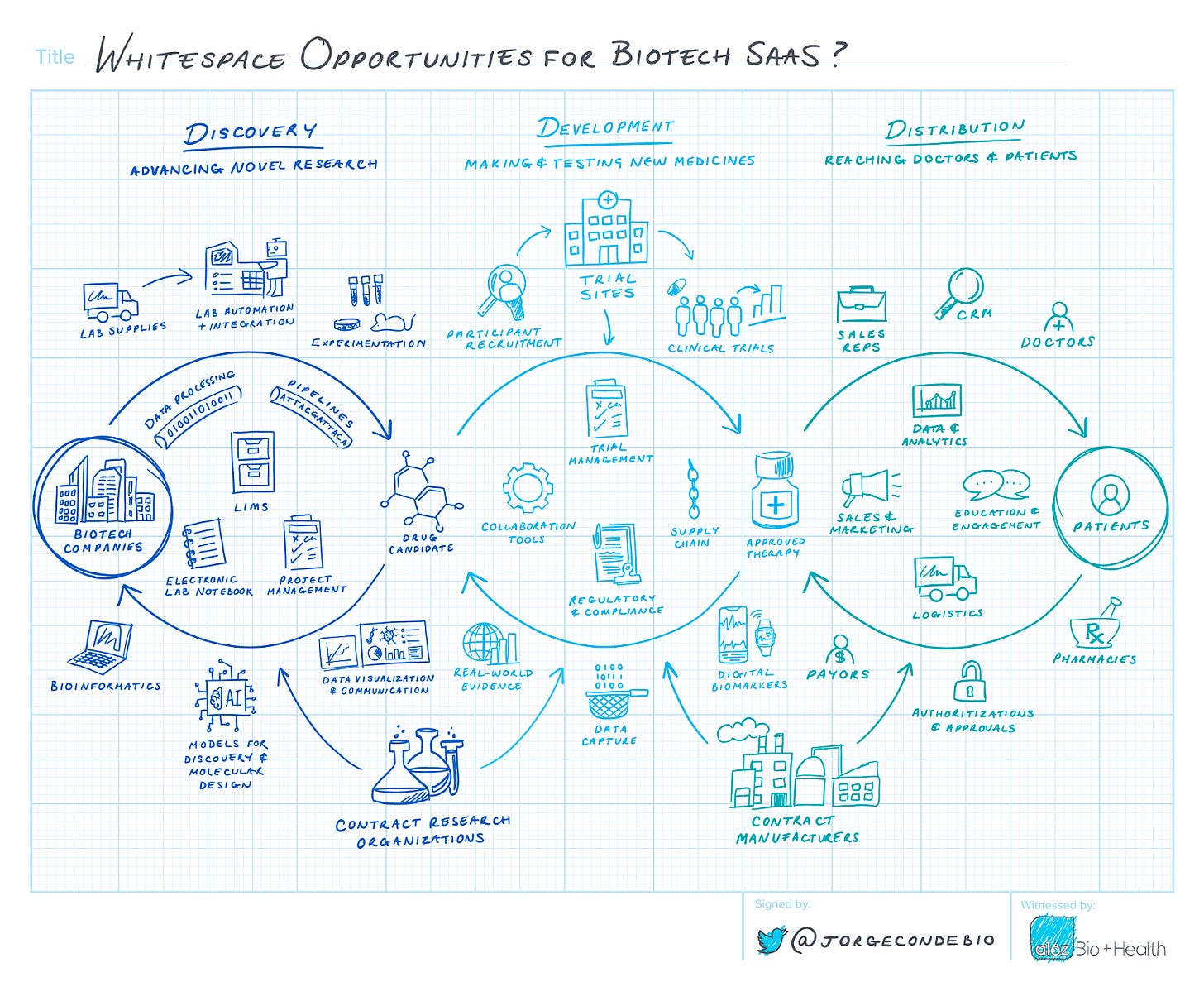One of the most common reasons why people in tech are hesitant to transition into biotech is that “they don’t have a bio background”. We’re here to tell you that’s ok! While many roles in biotech require deep scientific expertise, there are plenty of opportunities to get involved without it. We are going to focus on software roles here, but many other skill sets could take this advice to heart.
Let’s start by exploring the software roles that require scientific backgrounds. If you’re going to be analyzing data generated in a lab, you’ll need to have some grounding in the science. These roles are often marked as “bioinformatics”, “cheminformatics”, “computational biology”, or “computational chemistry” to signify the requirement of scientific knowledge. Certain ML roles also require deep understanding of the nuances of how the data was generated. Historically, these roles have been the majority of computational roles in biotech, but this is changing.
Recent scientific advancements have increased the scale and complexity of data generated in a lab, requiring more sophisticated software. This has led companies to value the contribution of software developers. Biotech and pharma companies are hiring across the tech stack – infrastructure engineers, backend developers, data engineers, UI specialists, and more. While there are many nuances to biological data and biotech processes, it turns out that a lot of software skills translate to building tools within biotech. Building robust pipelines to process millions of financial records shares a lot of fundamentals with building bioinformatics pipelines! Moreover working in biotechnology can prove rewarding because you will directly be supporting novel research and discovery of cures for diseases.
In addition to software development, there are other tech roles that can easily transition into biotech. A great example of a much needed gap in biotech software is UX research and design. Many scientists and operators in the field of biotech have long lamented the lack of intuitive UX in biotech software. In his Substack, Scaling Biotech, Jesse Johnson talks about the prevalence of ‘bad software’ in biology and in The Aliquot, Vega talks about the reasons why biotech seems to be lagging behind in creating intuitive user experiences.
If you’re still feeling intimidated by the prospect of working at a biotech company (what does a biotech even do?), there are also a growing number of vertical software companies that serve biotech. Your skills will be valued there and it’s a great way to get exposed to the broader industry without getting overwhelmed. Below are some resources that can help you get acclimated to the basics of software in biology:
The digital biotech startup playbook - A seminal guide on what it means to be a digital biotech or companies often dubbed as ‘techbios’. In this article Jake Feala of Flagship Pioneering describes the early concepts of a techbio defined by Moderna, the company that famously created the mRNA vaccine that rescued us from a global pandemic
Doing More with Moore: Biotech’s Tech Moment - A short blog post written by Jay Rughani and Jorge Conde at a16z. This is investor’s perspective on the changing landscape of biotechnology and growing need for better software and tech talent.
How biotech companies work - A presentation put together by Nicholas and Natalie from Bits in Bio describing where software gets applied in biotech companies. If you are prepared for an even deeper dive into the software ecosystem in life science, check out this logo map on Figma.
Educational blogs to follow
A few recommended books
Bits in Bio Community job board
A key part of Bits in Bio’s mission is to bring more talented people into the biotech industry. We hope this has given you a good place to start your search. To continue further, take a look at our job board, join our Slack, or reach out to Nicholas or Vega!






Super helpful overview, thank you!